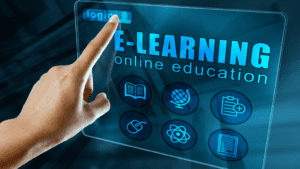Education is undergoing a tremendous upheaval, fueled by technological developments, shifting societal needs, and developing pedagogical approaches. As we stand on the brink of a new era in learning, it’s essential to explore the trends and innovations shaping the future of education. We’ll take a closer look at some of the key trends and innovations revolutionizing the way we teach and learn, and the potential impact they may have on the future of education.
1.Personalized Learning:
Tailoring Education for Individual Needs One of the most significant trends in education is the shift towards personalized learning. Rather than adhering to a one-size-fits-all approach, personalized learning leverages technology to adapt instruction and content to each student’s unique needs, interests, and learning pace. Through adaptive learning platforms, intelligent tutoring systems, and data-driven insights, educators can create personalized learning experiences that engage students, promote mastery of concepts, and foster a deeper understanding of subject matter.
2. Blended Learning: Integrating Traditional and Digital Instruction
Blended learning combines traditional face-to-face instruction with online learning modalities, offering a flexible and dynamic approach to education. By integrating digital resources, multimedia, and collaboration tools, educators foster an engaging, diverse learning environment. Blended learning empowers students to control their learning, accessing resources and collaborating globally.
3. Education Technology: Harnessing the Power of Digital Tools
Technology is driving innovation in education, revolutionizing the way we teach and learn. EdTech is revolutionizing education with VR, AR, AI tutoring, and gamified platforms, offering immersive, interactive, and personalized learning. Digital tools empower educators to foster curiosity, creativity, and critical thinking in dynamic environments.

4. Lifelong Learning: Embracing Continuous Education and Skill Development
In today’s fast-paced and ever-changing world, lifelong learning has become essential for personal and professional growth. The future of education is shifting towards lifelong learning, empowering individuals to acquire new skills, adapt to emerging technologies, and navigate complex challenges. Through online courses, micro-credentials, or workplace training, lifelong learning fosters relevance, competitiveness, and fulfillment in a dynamic world.
5. Collaboration and Connectivity: Fostering Global Learning Communities
The future of education is global, interconnected, and collaborative.Technology facilitates global connections for students and educators, transcending geographical barriers. Online platforms enable cross-cultural dialogue, fostering global citizenship and equipping students with skills for an interconnected world.
Conclusion: Embracing the Future of Education
As we navigate the future of education, it’s clear that we are entering an era of unprecedented opportunity and innovation. Embrace personalized learning, blended instruction, edtech, lifelong learning, and global collaboration to create engaging, relevant, transformative learning experiences for all students. Educators, policymakers, and stakeholders must adapt, innovate, and collaborate to ensure education drives positive change and progress.

